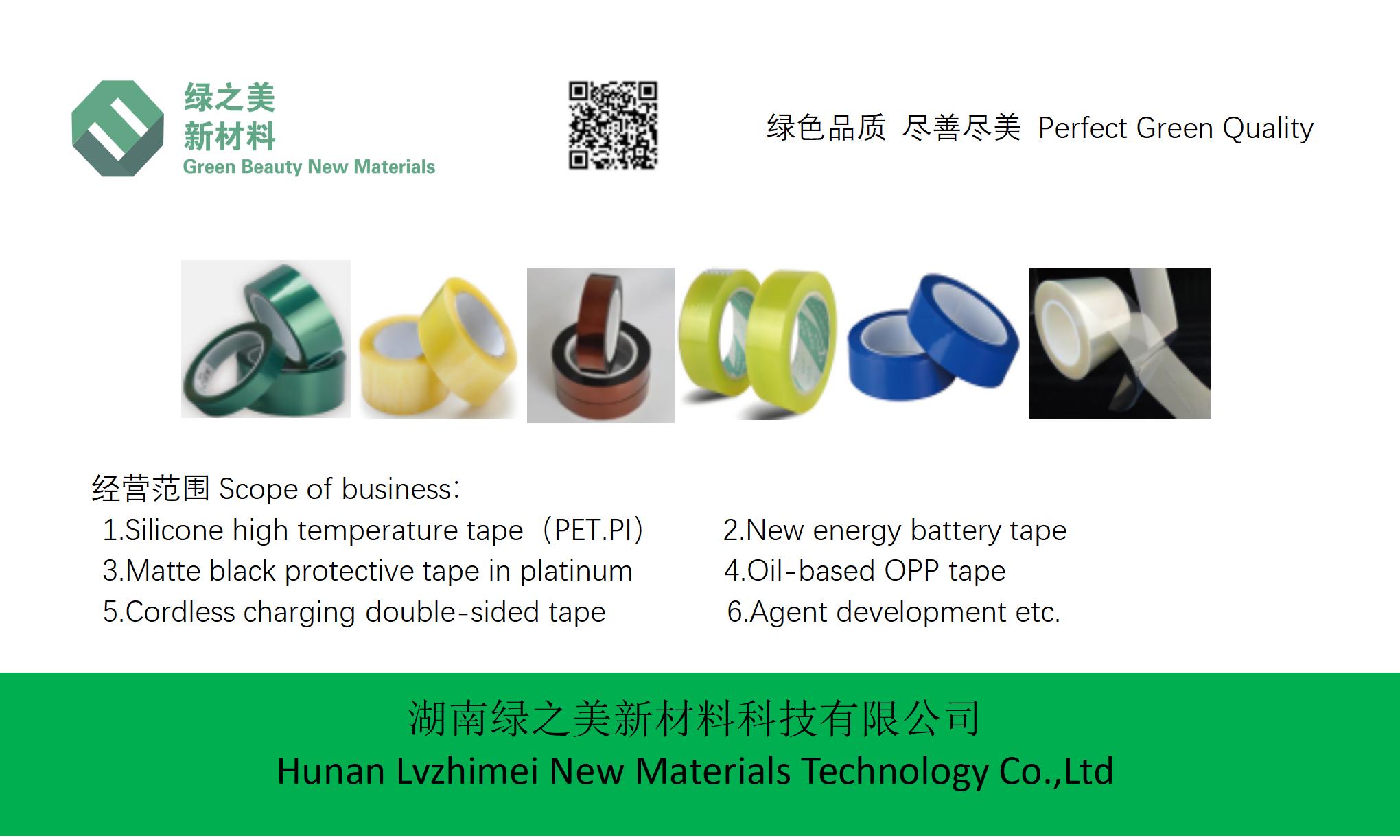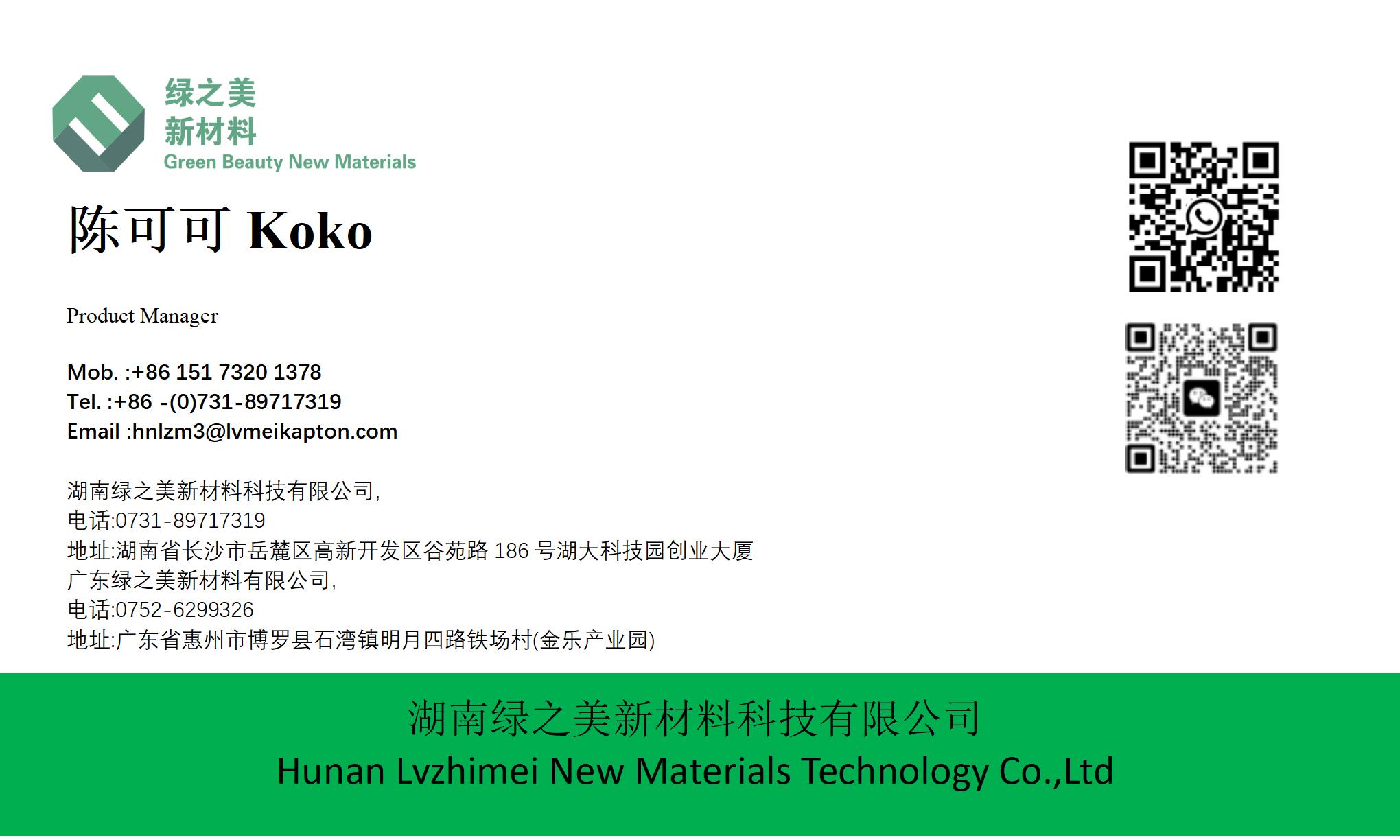hnlzm@lvmeikapton.com
+86 13787123465


Hunan Lvzhimei New Material Technology Co., Ltd.


NameDescriptionContent
What Are the Cross-Industry Applications of PI Material Tape Beyond Aerospace?|https://www.lvmeikapton.com/
Source:
|
Author:Koko Chan
|
Published time: 2025-04-29
|
37 Views
|
Share:
Polyimide (PI) tape, renowned for its exceptional thermal stability, electrical insulation, chemical resistance, and mechanical strength, has long been a cornerstone in aerospace applications. However, its versatility extends far beyond this niche market. This article explores the diverse cross-industry applications of PI tape in sectors such as automotive, energy, electronics, industrial robotics, home appliances, and 3D printing, highlighting its role in addressing multi-disciplinary engineering challenges.
Cross-Industry Applications of PI Material Tape Beyond Aerospace
IntroductionPolyimide (PI) tape, renowned for its exceptional thermal stability, electrical insulation, chemical resistance, and mechanical strength, has long been a cornerstone in aerospace applications. However, its versatility extends far beyond this niche market. This article explores the diverse cross-industry applications of PI tape in sectors such as automotive, energy, electronics, industrial robotics, home appliances, and 3D printing, highlighting its role in addressing multi-disciplinary engineering challenges.
1. Automotive Industry: Advancing Electric Vehicle (EV) and Thermal Management
The automotive sector increasingly demands lightweight, high-performance materials to enhance efficiency and safety. PI tape plays a pivotal role in:
a. Battery Pack InsulationIn EVs, lithium-ion battery packs require robust insulation to withstand thermal stress, chemical corrosion, and mechanical vibrations. PI tape (e.g., Kapton tape) with thicknesses ranging from 0.016 to 0.05 mm offers:
●
Extreme temperature resistance (up to 300°C) to protect against thermal runaway.
●
Electrolyte-resistant adhesive to prevent battery cell damage.
●
Low outgassing to maintain interior purity, crucial for battery longevity.
Example: Tesla’s Model S utilizes PI tape to insulate battery cells, ensuring safety and reliability even under aggressive driving conditions.
b. Motor and Transformer ProtectionPI tape shields electric motors and transformers from heat, moisture, and abrasion. Its high dielectric strength (up to 200 kV/mm) and thermal conductivity enables:
●
Overwrap insulation for stator windings, reducing heat buildup.
●
Corrosion protection in harsh engine environments.
Table 1: PI Tape Specifications for Automotive Applications
Property | Value/Range |
Thickness | 0.025–0.1 mm |
Operating Temp. | -65°C to +300°C |
Dielectric Breakdown | >200 kV/mm |
Adhesion Strength | 3–5 N/cm |
2. Energy Sector: Enabling Renewable Technologies
PI tape supports the scalability and durability of renewable energy systems:
a. Wind Turbine GeneratorsWind turbine generators operate in extreme environments (-40°C to +150°C) and require robust insulation. PI tape’s properties include:
●
High tensile strength (≥200 MPa) to withstand mechanical stress.
●
UV resistance to prevent degradation from prolonged sun exposure.
●
Excellent adhesion to metal and composite surfaces.
Case Study: Siemens Gamesa’s offshore wind turbines use PI tape to insulate generator coils, reducing maintenance costs by 30% due to enhanced durability.
b. Solar Energy SystemsPI tape serves as a critical component in solar module manufacturing:
●
Cell interconnection tape: PI’s high thermal stability (Tg > 400°C) ensures long-term reliability under intense solar radiation.
●
Flexible electronics: Transparent PI films enable lightweight, foldable solar panels for portable applications.
3. Electronics and Electrical Engineering
PI tape’s electrical and thermal properties make it indispensable in electronics:
a. Circuit Board Protection
●
Gold finger protection: PI tape (e.g., brown PI tape) shields PCB edges from oxidation and abrasion during handling.
●
Solder mask replacement: Its high thermal resistance (up to 260°C) allows direct soldering without degradation.
b. Transformer and Coil InsulationIn power transformers, PI tape replaces traditional enamel coatings, offering:
●
Improved thermal management via high thermal conductivity variants (≥0.8 W/mK).
●
Minimized electromagnetic interference (EMI) through superior electrical insulation.
c. High-Voltage Cable TerminationPI tape’s flame retardancy and hydrolysis resistance ensure safety in cable joints and terminations, particularly in underground or marine installations.
4. Industrial Robotics and Automation
Robots operating in foundries, automotive plants, and semiconductor fabs face severe thermal and mechanical stress. PI tape addresses these challenges:
●
Cable harness protection: PI tape wraps robot joints and cable bundles, resisting abrasion, oils, and temperatures up to 260°C.
●
Sensor insulation: Thin PI films (15–25 μm) protect sensitive electronics from electromagnetic noise.
●
3D printer bed adhesion: PI tape applied to print beds enhances filament adhesion, preventing warping in high-temperature polymers (e.g., PEEK).
5. Home Appliances and Consumer Electronics
PI tape’s cost-effectiveness and performance boost appliance reliability:
●
Motor insulation in washing machines, air conditioners, and vacuum cleaners extends product lifespan.
●
EMI shielding in smart devices (e.g., IoT sensors) ensures signal integrity.
●
Thermal barriers in LED lighting prevent overheating, maintaining luminous efficiency.
6. Medical and Healthcare
PI tape’s biocompatibility and sterilization resistance open niche applications:
●
MRI coil insulation: PI’s non-magnetic properties allow safe use in magnetic resonance imaging systems.
●
Implantable device coatings: Thin PI films protect pacemaker leads from body fluids.
●
Surgical instrument wrapping: High-temperature PI tape withstands autoclave sterilization.
Future Trends and Innovations
Emerging technologies further expand PI tape’s potential:
1.
High-Density Energy Storage: Next-gen lithium-metal batteries require PI tape with enhanced flame retardancy and puncture resistance.
2.
5G Infrastructure: PI tape’s low dielectric constant aids in miniaturizing high-frequency antennas.
3.
Additive Manufacturing: Conductive PI tapes may revolutionize 3D-printed electronics.
4.
Nano-PI Composites: Hybrid materials combining PI with graphene or ceramics boost thermal conductivity and mechanical strength.
Conclusion
PI tape’s cross-industry applications demonstrate its status as a “Swiss Army Knife” material. From EV battery packs to wind turbine generators, its thermal resilience, electrical insulation, and adaptability drive technological advancements. As industries pursue sustainability, miniaturization, and reliability, PI tape’s role will only deepen, solidifying its position as a cornerstone of modern engineering.



Hunan Lvzhimei New Material Technology Co., Ltd.
Quick Links
Product Categories
© 2024 Hunan Lvzhimei New Material Technology Co., Ltd.All Rights Reserved. Designed by Erge
0731 - 89717319
hnlzm@lvmeikapton.com
+86 13787123465
Room 502, Chuangye Building, No186, Guyuan Road, High-Tech District, Changsha, Hunan, China
CONTACT



